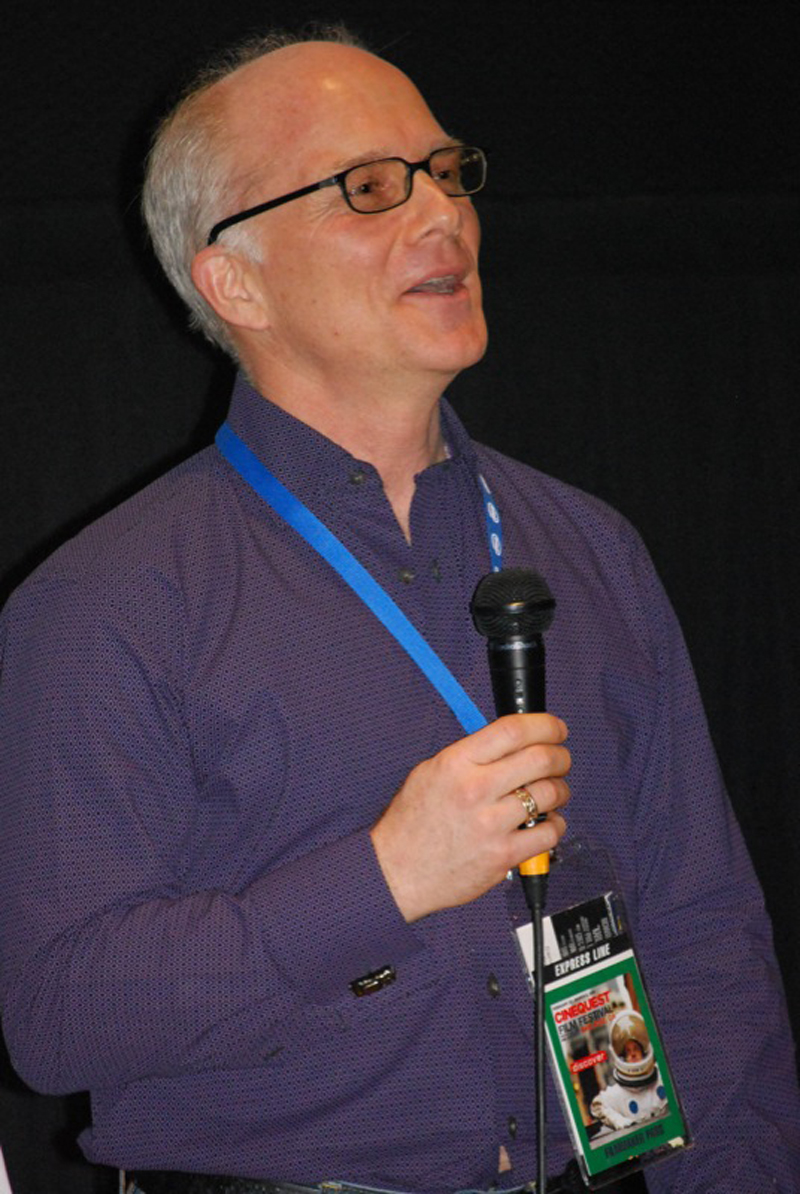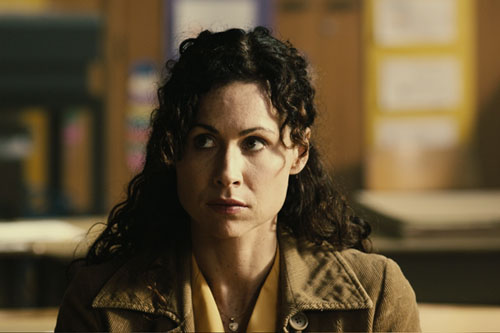|
|
||
|
Pro Tools
FILMFESTIVALS | 24/7 world wide coverageWelcome ! Enjoy the best of both worlds: Film & Festival News, exploring the best of the film festivals community. Launched in 1995, relentlessly connecting films to festivals, documenting and promoting festivals worldwide. Working on an upgrade soon. For collaboration, editorial contributions, or publicity, please send us an email here. User login |
Cinequest 17 Wraps
Guess what? The Cinequest vision thing has snapped into sharp focus. For years, Cinequest has branded itself as a festival of “discovery, empowerment through knowledge and the latest in technologies, and revolutionary distribution.” Cinequest 17 proved that its ideas touted for more than a decade are no longer just wishful thinking. The revolution has begun.
Perhaps no one personifies the ideal of the maverick more than producer Christine Vachon (BOYS DON’T CRY, SAFE, HAPPINESS, FAR FROM HEAVEN), the recipient of Cinequest’s highest honor, the Maverick Spirit Award. If anyone deserves a big, sold-out event, she’s the one. According to Jens Hussey, Director of Public Relations, the printing deadline for the festival program guide arrived before Vachon’s attendance was confirmed, so her Maverick Spirit Event was not listed in the hard copy that everybody carries with them. Despite the updated online guide—and daily postings of screenings and events on the windows of the Camera Cinemas—many festival attendees bemoaned that they missed Vachon’s deserving tribute.
At the more intimate San Jose Repertory Theater, J.J. Abrams (ALIAS, LOST) and Christopher McQuarrie (THE USUAL SUSPECTS) received the first and the last of the five Maverick Spirit Awards, respectively. On the stage, each was as witty and entertaining as on the page. J.J. Abrams regaled the audience with tales of working with Tom Cruise and Steven Spielberg, and conveyed the often-heard festival mantra that if you have love and passion for your work, “the odds are overwhelmingly in your favor, it will succeed.” Such upbeat statements can roll off his tongue easily. Abrams grew up in a position of Hollywood privilege, hanging out on the set of his father’s television productions, before making his co-producing debut with REGARDING HENRY in 1991. Christopher McQuarrie had an entirely different perspective. He grew up in New Jersey, far removed from an inside track to the industry. McQuarrie and high school friend Bryan Singer had co-scripted PUBLIC ACCESS, the indie thriller that opened Cinequest in 1993. The feature shared the Sundance Grand Jury Prize with RUBY IN PARADISE that year, and McQuarrie joked, “There were only four judges, so only two people liked it. Everyone else at Sundance hated it.”
“Yeah, we’ve got a poster,” McQuarrie replied. “How hard could it be?” The future Oscar-winner had three days to come up with a story. McQuarrie drew inspiration for Verbal Kint’s interrogation from what he observed at the law office, and he got caught up in the “dumbest writing exercise.” He looked around a room for things to incorporate in his story—the very process that would provide THE USUAL SUSPECTS with its unforgettable ending. Despite a series of funding and marketing fumbles, the movie gods smiled down on THE USUAL SUSPECTS. McQuarrie wasn’t so lucky during the seven years he and Peter Buchman developed their biopic of Alexander the Great. He said, “It took me ten years to realize that I don’t write movies. I write screenplays, and screenplays don’t get movies made.” McQuarrie talked about the economic factors that drive the high-stakes motion picture industry, the seven directors who “trigger movies and everything else in the studio universe and executives who only care about signing “whatever star was huge that day” to minimize risk and feel safe in their decision making. Addressing strategies for shopping around scripts and the Hollywood-herd mentality, McQuarrie quipped, “If you go to Los Angeles and put a red rope around a dumpster, everyone will want to get in the dumpster.” Imagine if Cinequest had put J.J. Abrams and Christopher McQuarrie on the same stage.
In today’s cluttered Internet and theatrical marketplace, the competition for eyes and ears is intense. Current wisdom stipulates that expensive studio marketing campaigns and theatrical box-office success driv On closing night, co-founders Halfdan Hussey and Kathleen Powell declared that Cinequest 17 had been an absolute joy. All the maverick filmmakers in attendance were herded onto the California Theatre stage for the award announcements (see "Cinequest 17 Awards"). They didn’t particularly look like revolutionaries, but they certainly looked happy to be there. --Susan Tavernetti Photo credit (Stewart Copeland): Craig vanWaaden
19.03.2007 | Cinequest's blog Cat. : American film directors Bill Maxey Bosnia and Herzegovina Brazil Bryan Singer Business Business Cat Ly China Christine Vachon Christopher McQuarrie Christopher McQuarrie Cinema of the United States cinequest Cinequest Associate Cinequest Film Festival closing night Croatia Cuba Czech Republic Denmark Entertainment Entertainment Film Finland GREEN DRAGON Halfdan Hussey Heist films Herzegovina Human Interest Human Interest Hungary Indonesia Iran J.J. Abrams Jaman Jens Hussey Kathleen Powell Labor Labor Law Law Los Angeles Malaysia Maverick Spirit Awards McQuarrie Mexico Mike Rabehl Minnie Driver Oscar Peter Buchman Philippines printing Public Access Romania Saigon San Jose Serbia Stephane Gauger Steven Spielberg Stewart Copeland Sundance Susan Tavernetti Photo Technology Technology The Cinequest Film Festival the Maverick Spirit Award the Sundance The Usual Suspects Timothy Linh Bui Tom Cruise Vietnam War War Wrap YouTube Honors Independent Shorts FILM FESTIVALS
|
LinksThe Bulletin Board > The Bulletin Board Blog Following News Interview with EFM (Berlin) Director
Interview with IFTA Chairman (AFM)
Interview with Cannes Marche du Film Director
Filmfestivals.com dailies live coverage from > Live from India
Useful links for the indies: > Big files transfer
+ SUBSCRIBE to the weekly Newsletter Deals+ Special offers and discounts from filmfestivals.com Selected fun offers
> Bonus Casino
User imagesAbout Cinequest Colon Antonea Colon Antonea (Cinequest) CINEQUEST is a vanguard organization that fuses creativity with technological innovation to empower, improve, and transform the lives of people and communities. View my profile Send me a message The EditorUser contributions |

































